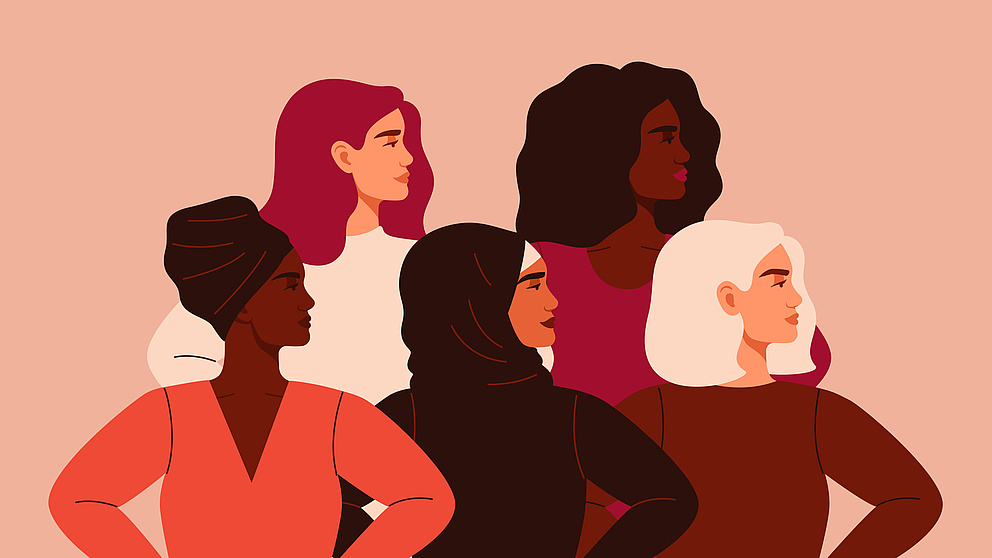Jump to the content
- {{#headlines}}
- {{title}} {{/headlines}}
Object and purpose of the study
One of the Alexander von Humboldt Foundation’s strategic goals is to promote diversity in science and research as well as in its own network. Gender equality and equal opportunities are core components of this goal – because even in the Foundation’s network there is evidence of what is known as the leaky pipeline: About a third of sponsorship-recipients are female. In the sponsorship and award programmes, which target researchers at very advanced stages of their careers, women are under-represented. And in terms of the female Humboldtians’ countries of origin, representation of the various regions differs greatly.
This analysis aims to determine just how many outstandingly qualified and internationally mobile women researchers there are worldwide who could potentially be recruited for a research stay in Germany and what their specific needs may be. At the same time, it examines gender-specific aspects of selected Humboldt Foundation programmes and develops recommendations for action in order to recruit a larger number of highly qualified women researchers for a research stay in Germany.
Method
For its comparison of countries, CEWS cooperated with international experts to evaluate data on the research and higher education systems in 14 countries worldwide, and also conducted supplementary interviews: Algeria, Chile, Colombia, India, Mexico, Morocco, Netherlands, Nigeria, Poland, South Africa, Spain, Tunisia, United Kingdom and United States.
For its programme analysis, CEWS evaluated Humboldt Foundation documents and held interviews with staff at head office as well as host researchers in Germany. They also drew on reference data on other institutions’ funding programmes, such as that of the European Research Council (ERC).
Results and recommendations
Together with the reference data, the comparison of female representation on the various levels of academic careers in the countries surveyed indicates that there are currently qualified women researchers who are not yet being reached by the Humboldt Foundation’s programmes. This is particularly true for Algeria, India, Netherlands, Nigeria, South Africa, Tunisia and the United States.
Women are very differently represented in the science systems of the countries surveyed – but supranational patterns and obstacles do emerge that prevent women from pursuing research internationally:
- Gender-specific division of labour in families can be a real obstacle to women’s international mobility. Moreover, the fact that caring responsibilities are allotted to women feeds the basic assumption that international mobility is barely practicable due to women researchers’ family commitments. Consequently, women are less frequently considered for an international research stay.
- Women are more frequently confronted with institutional obstacles because, to a greater extent, they hold positions that are allocated less time and fewer financial resources for research.
- Female researchers are more often in precarious employment and thus have more fragile networks. This means that a temporary absence from their own institutions may endanger their careers.
- Furthermore, gender-specific inequalities are reinforced by other factors such as social or ethnic origin.
Men more frequently cooperate with men, women with women: This pattern is also replicated in cooperation between international sponsorship-recipients and their academic hosts in the Humboldt Network in Germany. In this context, the survey recommends recruiting yet more women as hosts. Moreover, incentives should be introduced to encourage male hosts to recognise, nominate and mentor more women as collaborative partners.
The Humboldt Foundation offers benefits in the form of subsidies towards the costs of health insurance and third-party liability insurance to researchers who are accompanied by their children and marital partners. But some highly qualified international women researchers have other needs. They are often childless, and if they have a partner, they tend, in the words of the study, not to be “portable partners.” This is why dual career opportunities are often more relevant for international mobility. Furthermore, the study recommends the Foundation to campaign for general conditions that extend family benefits to include unmarried hetero- and homosexual couples and additional individuals in order to take account of different family models.
The gender equality measures introduced by the Humboldt Foundation so far overwhelmingly aim at sensitising women and making them more visible as (potential) sponsorship-recipients (fixing the women). Looking forward, the survey recommends a greater emphasis on addressing female academic hosts, structural causes and institutional obstacles in science systems (fixing the system) as well as campaigning to enhance gender competence and knowledge (fixing the knowledge).
Dossiers containing information on the 14 countries surveyed
As part of the study, the following dossiers containing country-specific information were compiled on the 14 key countries:
- Contextual analysis of higher education systems, including qualification and career structures,
- Gender participation, including in degrees, doctorates and academic personnel,
- Gender-specific aspects of academic careers, including remaining in or leaving academia, exclusion mechanisms.
PDF download of the dossiers: Algeria, Chile, India, Colombia, Morocco, Mexico, Netherlands, Nigeria, Poland, Spain, South Africa, Tunisia, United Kingdom and USA
Additional information
- Direct link to the study "Zugänge, Barrieren und Potentiale für die internationale Mobilität von Wissenschaftlerinnen" (German only)
- Agenda for Embracing Diversity: Actively promoting diversity in science (press release, November 2021)
- Henriette Herz Scouting Programme: recommend research talents from abroad
- #ProgressDiversity: More diversity for science (campaign, 2021)



